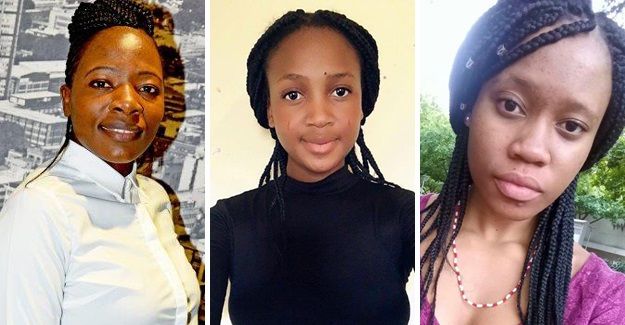AECOM is providing financial assistance to young women in previously disadvantaged communities, awarding bursaries through its Educational Trust.

L-R: AECOM Educational Trust bursary recipients Tshilidzi Bridget Lutsinge, Nokubonga Lady-Peace Nxumalo, and Keabetswe Beverly Sehoole
The trust was established in 2017 and celebrates its second intake of three students this year, highlights Rashree Maharaj, marketing and communications director, Africa at AECOM. Maharaj is a member of the trust, together with Senika Devsheel, HR director for Africa, and Bowmans attorney Lusanda Raphulu, who joined the trust this year.
Commitment, perseverance and self-discipline
“While the trust focuses on academic stalwarts, they also need to be truly empowered women and go-getters who show exceptional commitment, perseverance and self-discipline,” Maharaj comments.
Tshilidzi Bridget Lutsinge, who is currently studying for her PhD in chemical engineering at the University of Pretoria, also received a bursary in 2017, performing exceptionally well in her masters. The other two recipients for 2018 are Keabetswe Beverly Sehoole and Nokubonga Lady-Peace Nxumalo.
Such has been the success of the AECOM Educational Trust that, following the receipt of about 50 bursary applications in 2017, this year it received over 4,000 applications from universities across South Africa.
Reversing gender imbalances a priority
Reversing educational and workforce gender imbalances is a top global priority, and reflects the fifth United Nations Sustainable Development Goal of achieving gender equality and empowering all women and girls.
“We at AECOM believe strongly in this, and this is why our trust also aims to transform the world of work for women in the various fields of engineering and other related sectors to help enable a future of equal economic opportunities and outcomes in the workplace and in the technical trade space in Africa,” Devsheel notes.
“South Africa needs more women to join professions that have been restricted to them historically. While a lot of girls do phenomenally well in maths, science, and languages at school, there seems to be a fundamental disconnect between lower levels of schooling and the tertiary or professional levels. The AECOM Educational Trust is one way of addressing this issue proactively,” Maharaj concludes.


































